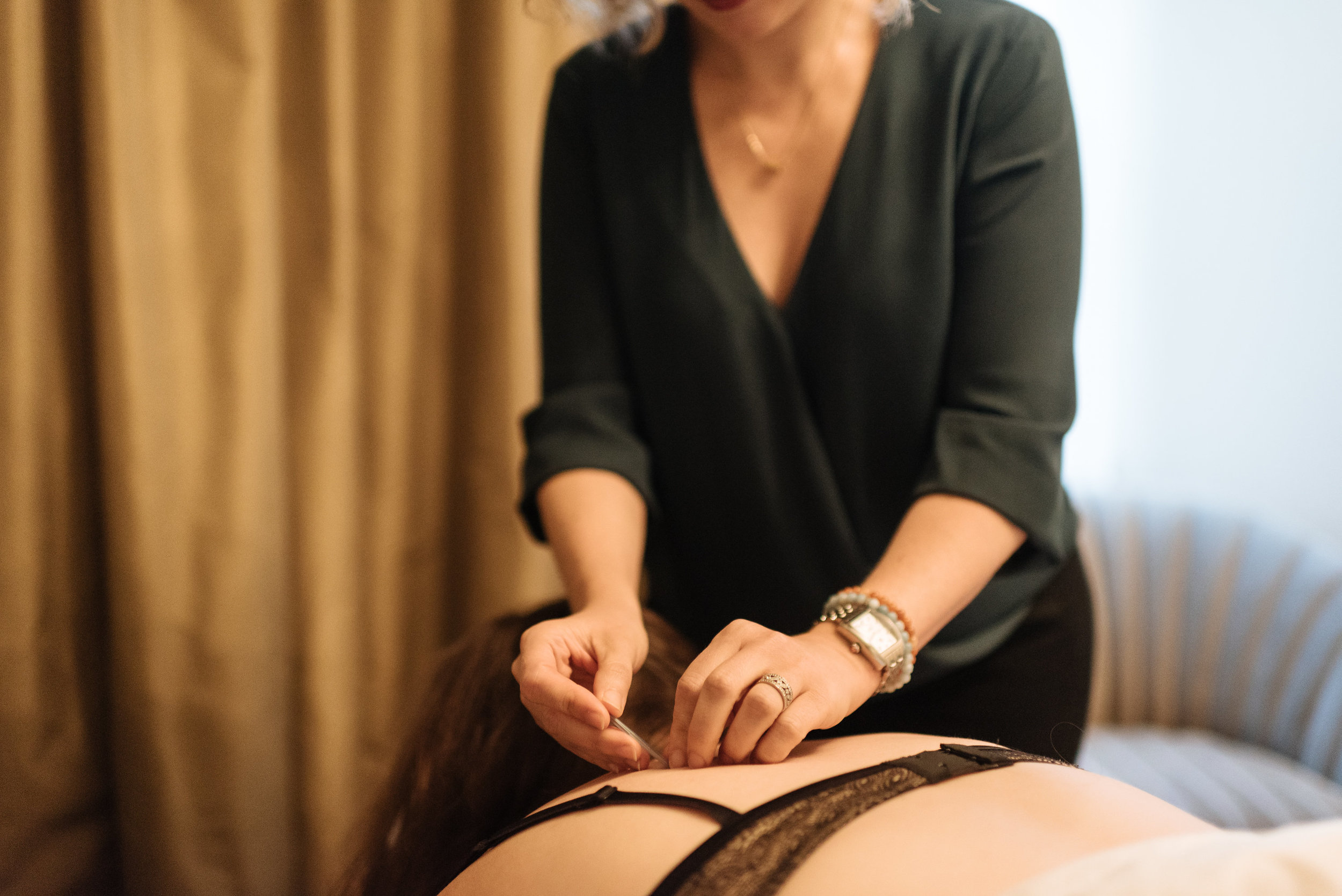‘I Love the Immediacy of Helping People’
Working in international development took a toll on Jill Hicks. She’d spent several years working on Sub-Saharan African countries, and the last four of her career on the Middle East.
‘I worked on Southern Sudan before it was a country and it was really hard on my body,’ she says. ‘I got sick a lot when traveling and I’d come home and have a really hard time recovering, and then I’d go out and get sick again. Over the years my body went through this process where I got sicker and sicker and that ramped up my stress response to the point where I made myself sicker and sicker because I wasn’t sleeping well. I was coming to a point where I knew I had to do something different, but I didn’t know what to do.’
Jill started teaching yoga a few years prior, and found herself drifting toward a health-related career change. One day she asked her Georgetown acupuncturist—who had helped manage her own back pain, anxiety and fatigue—if she should go to medical school.
At 35, Jill made the decision to quit her job, move to California with her husband, and go to medical school. She moved back to DC four years later and opened Scarlet Oak Acupuncture last summer.
In her first year, Jill has treated everything from pain to anxiety, fertility, digestive issues, allergies, sleeping problems, and autoimmune diseases—all with the insertion of hair-fine, solid needles. For most, the treatment is painless—and, often, the most relaxing hour of their week.
‘We call it last-chance medicine,’ says Jill, also a traditional Chinese herbalist. ‘We get a lot of people who have tried everything else and when nothing has worked, they come here last. Those are the really desperate people. But I always say if you’re having a heart attack or stroke, you should go to the ER—but for everything else there’s probably something we can do.’
Election results included.
‘After November, especially for the first few months, people would come in and say I just don’t know what’s wrong, and eventually they’d say I think I’m still stressed with the election. They weren’t alone; I heard that from half my patients.’
Stress plays a role in nearly every issue affecting Jill’s patients. Through the lens of Western medicine, Jill says acupuncture helps to balance the nervous system—particularly useful in a world in which everyone is constantly in fight or flight mode.
‘You get up, you check your email, you’re stressed. You get in the car to drive and you’re stressed. When you come in here and lay down for an hour on the table, your body helps reset and takes you out of fight or flight and into the parasympathetic system. A lot of times, people are asleep before I’m even done needling them. The body starts to recognize what’s supposed to happen. It brings peace to your body that a lot of people don’t have, and that carries forward.’
Peace was harder to come by in Jill’s previous work. So, too, was an established medical system—she visited a northern Iraq emergency room, with no plans to return—and adequate food sources. Still, Jill says countries in Sub-Saharan Africa treated illness by addressing the natural surroundings. Her approach is similar.
‘I think one of the things I really push from Chinese theory and philosophy is treat first with food, then herbs, then needles,’ says Jill, who also offers herbal and lifestyle consults for those too squeamish for needles, no matter how tiny. ‘I take a very food-first approach and look at diet. Food and what we’re eating is a huge, huge piece of health and managing your body’s stress response.’
Most often, patients are hung up on calories and eating low-fat—a misguided diet ‘drilled into us our whole childhoods.’ Jill says it’s difficult for people to let go of that mindset and understand that sugar is driving most issues.
‘You see a lot of people doing a lot of juice cleansing, which is just a lot of sugar in most cases. I encourage people to up the fat. You might even want to put on a few pounds of avocado.’
Has more welcome medical advice ever been given?!
Beyond avocado directives, Jill’s guidance depends on every patient’s comfort level in a very personal medicine.
‘I can go as deep as they’re willing to take me. For some of my patients, we’ve really bonded and talk about some deep stuff, like fertility issues. Some people keep it more superficial. Let’s work on my knee and keep it to small talk.’
Rarely a one-off treatment, Jill suggests six to eight weekly sessions for first-time patients who are struggling with an ongoing issue. Those managing a chronic issue often come in weekly, while others find relief in a strict herbal regimen with punctuated office visits.
‘I love the immediacy of helping people. For years when I worked in international development, we were putting in all this time and money and at the end of the day, I asked myself what results were we really seeing. It was frustrating. Most people leave here feeling better than when they came in and I love seeing those results. I like controlling my own little world.’






